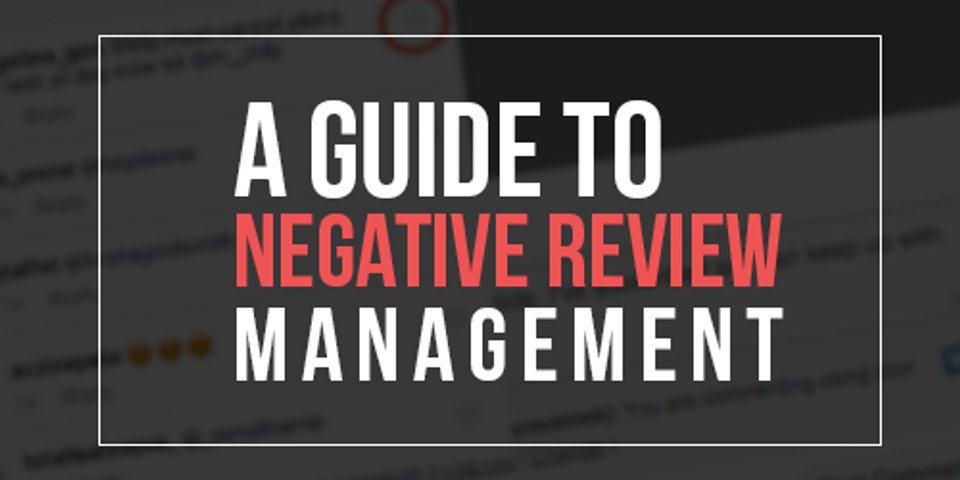Why I Love Negative Performance Reviews

Imagine that, later today, you are going to give a performance review to a person on your team that has not really being working hard or has a bad attitude. You know this is going to be a difficult conversation to have. In fact, if this conversation does not go well, there is a very high likelihood that you’ll have to fire this individual soon.
Some people reading this scenario are already getting nervous and physically upset about it, even if you don’t have to actually do this! Others are thinking, “What’s the big deal? Just tell them they better get better or they’ll be fired.” Some would even say, “If I even have to think about having a conversation like that, I will just fire them on the spot.” Those, of course, are the extreme reactions. Most of you are probably thinking “This is hard, I don’t like it, but I want to figure out a way to do it well.”
Here are some suggestions to help all of you to find a better way to handle this type of conversation in a way that is positive for both you and the individual. It won’t always lead to turning this person into the best team member you ever had, but you have a much better chance of improving the work and attitude of the individual.
First, make sure that the individual knows that this is a serious conversation, not a simple “good feeling” chat. There are a couple of ways of doing this, but stating, when you schedule the meeting, that this is in regard to a specific situation (which lets them know it was something not that good) or saying, “I’d like to discuss a concern I have,” when inviting them to let them know it’s something more than a chat. Also, providing them their written review at least 24 hours before your meeting will allow them to read, absorb and prepare for the conversation. The worst thing you can do is dump a review in their lap and say, “Read through this right now and then we’ll discuss.” Please, don’t ever do that to a team member! It doesn’t help them, and it certainly will not help you.
Next, please dump the “Oreo” technique. It was taught many years ago as being a helpful way to engage with people during hard conversations. It has been so overused that people are now very wary of it. Think about how when it is used on you!
What’s the Oreo technique; say something nice about what the person has done, then slam them with the negatives you really wanted to talk about, and then finish with something nice again. Gag me with a spoon! People do not hear anything good when you use this technique. It is manipulative, and people feel manipulated, as they should. Stop it! Every time that they hear you say something good about what they’ve done, they just wait for the other shoe to drop. They aren’t appreciative of the good and wonder what they did wrong.
It is far better for them to learn that when you say something good to them, you mean it. There is no other motive than to tell them they did a good job. There is nothing more. And if your conversation starts with, “I have a concern about…”, they know you will only be talking about that and not try to sugarcoat anything. The conversation is serious and will go from there. Having conversations in this way will lead to a tremendous amount of respect and you’ll find they will respond to you much better. You’ll also find it will be much easier to have difficult conversations because they will be more attentive to your concerns.
Next; make sure your hard conversation is focused on the performance, not the person. In fact, this is true of both negative AND positive conversations. Talking about the person is an attack on something held very dear to them, and most of the time, can’t be changed. But performance can be changed, so focusing on the performance allows you to keep the person’s dignity intact, but help them improve their performance, which is under their control. When you do this, keep to the facts and do not exaggerate (“You are NEVER on time.” “You ALWAYS do this…”). Use words such as, “You sometimes are late, and it impacts…”
The last part of the sentence above is very important – who does their poor performance impact? Not what, but who. Make it personal; you want them to understand that it is people that are impacted, not things. So what if it’s a late project; everybody has late projects. But WHO does this late project impact? That can have some meaning to them.
Give them an opportunity to respond. Don’t make it only a one-way conversation. Allow them to talk. Yes, they might be very defensive with all kinds of excuses. Let them spew it all out. That’s okay. When they are finished, focus back on the performance.
Finally, at some point, you will need to make sure they clearly understand your expectations on what improvement will look like. Don’t be ambiguous. Give them some detail and timelines (please, make them realistic). What follows is, to me, the most important leadership principle ever stated. If all leaders would just follow this principle honestly, then most of all their “people” issues would fall away. It is:
You cannot hold someone accountable for something that you did not tell them was expected.
If you respond to that by saying, “They should have known,” then you didn’t do your job! When you tell someone what is expected, make sure they repeat back to you what is expected. Just telling them isn’t enough, you have to be sure they understood it. Then, you can hold them accountable.
You’ll end up with 3 potential outcomes of this type of review: 1) they’ll respond as you hoped and become a better performer, 2) they’ll look for another job and quit, 3) you’ll have to fire them eventually. In my way of thinking, all 3 are good! The first two are obvious, but why is the third one good? Because, if I have done my job well,that person already knows what is coming and when the expectations are not met, they are expecting the “fire.” There is no drama, no tears, it actually becomes a pretty simple conversation at that point. I don’t fear firing people when I have done all of the above.
I understand that there are many different situations and people and other factors involved in every hard conversation. But I also believe that if we can follow the above suggestions a bit better, we’ll be able to improve productivity for everyone on our team.
If you would like to learn more about how to improve your team’s, or your, leadership capabilities, then let’s have a conversation. I can be reached at 720-515-8081 or john@leadershipcolorado.com.
About the Business
Have a question? Ask the experts!
Send your question

